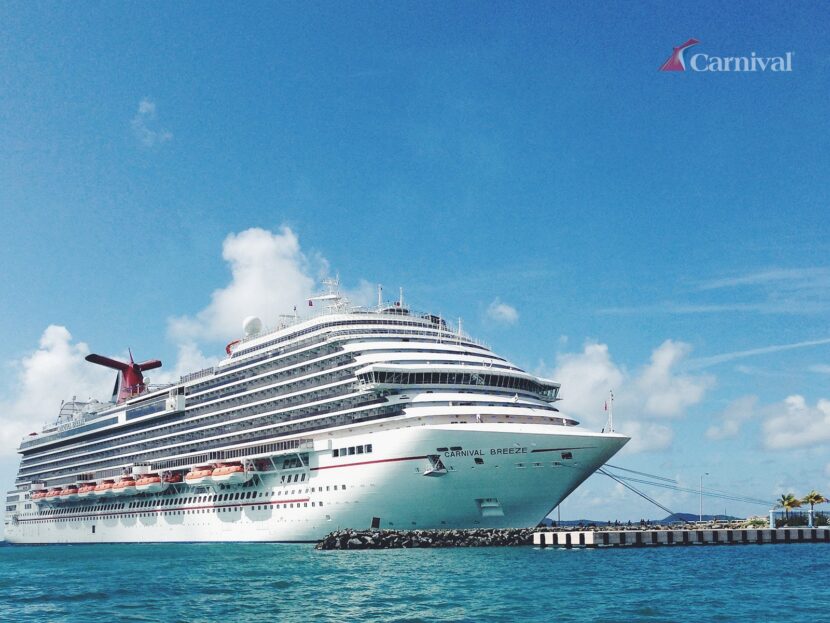NEW YORK – Arnold W. Donald strolls across the Carnival Splendor’s lido deck, checking in on passengers. He cozies up, places a hand on their shoulder and asks: Are you having a blast? He sure hopes so.
For Donald, the charismatic new CEO of Carnival Corp., the “great camaraderie” passengers find onboard his ships matters more than fancy restaurants or countless amenities. That intangible feeling isn’t easily marketed, but is crucial as he tries to fix the world’s largest cruise operator.
It’s been a rough two years for the company. First, its Costa Concordia sank off the coast of Italy, killing 32 passengers. Then an engine-room fire on its Carnival Triumph left the ship without power. For five days, passengers lacked air conditioning, hot food and use of most toilets. Cable news was fixated, dubbing it the “poop cruise.”
Demand for cruises plunged. Carnival slashed prices to fill its 102 ships and announced a $700 million initiative adding emergency generators and upgrading fire suppression systems. Passengers remained hesitant.
Then last June, Micky Arison, the son of Carnival’s founder and the CEO since 1979, stepped aside. Donald, who spent 12 years on the company’s board, was picked as his replacement.
He was an unlikely choice. Donald made a career at Monsanto Co. overseeing Roundup weed killer and later led a company manufacturing the artificial sweetener Equal.
Donald was first drawn to cruises in 1982. Not for the food or the destinations – but for blackjack.
“I counted cards,” Donald says. Dealers on ships didn’t shuffle cards frequently, making it much easier to count than in a Vegas casino. Donald’s winnings paid for that first cruise “and then some.”
“When someone says I have no cruise experience, I guess I could be funny and just say: I’ve cruised a lot,” Donald says. “The reality is business is business.”
Donald now pitches cruises as a hassle-free, affordable vacation. Guests only unpack once. Entertainment and meals are included.
“We are actually, for a lot of people, more cost effective than visiting your relatives – and we’re probably more fun,” he says.
That affordability hurts the bottom line. Donald wants passengers to spend $20 more a day between tickets and onboard purchases – maybe a better quality alcohol, a fancy dinner or an extra shore excursion. That would net Carnival an additional $1.5 billion a year.
Carnival could use the cash. It earned $1.08 billion last fiscal year, its lowest annual profit since 2002.
That’s only half the challenge.
Donald has shuffled executives, trying to force the company’s 10 brands to work closer together. It’s tricky. Each line – Holland America, Princess, Cunard and Seaborn, to name a few – prospers on its unique personality. The Cunard experience, for example, is very different than Carnival.
“The brands are king,” Donald says. “People don’t sail on a corporation.”
But Carnival also needs to capitalize on its massive size. That means negotiating – for the first time – deals with one set of vendors for food, cleaning supplies and towels. A simple concept, but until Donald took over the 10 brand heads had never even met together.
Donald, 59, grew up in New Orleans during segregation, the youngest of five children.
As a young black boy, “society was constantly telling us in subtle ways, that you’re less than, you weren’t really a part of, you can’t do this, you can’t do that.” But as a teenager, the civil rights movement was underway. Opportunities started to appear. A scholarship let him attend the prestigious St. Augustine High School.
“Three times a day, they would say: Gentlemen, prepare yourselves, you’re going to run the world,” Donald recalls.
By junior year, Donald had a very specific goal: to be a general manager at a Fortune 50 science-based, global company.
“Nobody in my family was even in business. Period. So obviously, I’d been brainwashed,” Donald says. He was accepted to the U.S.
Military Academy at West Point. But it was during the Vietnam War.
During a campus visit, he realized the Army wasn’t for him.
“I was a young hothead, a ’60s wannabe and 17 years of age thinking: I’m going to go someplace where I can’t speak my mind,” he says.
Then Easter weekend he toured Carlton College in Northfield, Minnesota. Hazel Roberts, a senior from Boston, was part of the same recruiting trip. They met, chose Carlton and were married two years later. After graduation, the couple went on to the engineering school at Washington University in St. Louis.
Scholarships made all that possible. Today, the couple finances several high school and college grants. And, because of their support, the business technology centre at St. Augustine is named after Donald’s parents.
It’s a philosophy that carries over to their St. Louis home.
Donald had carved into the Indiana limestone fireplace mantel a Greek phrase that translates: Education is a portal to prosperity.
In the business world, Donald developed a reputation for his personal approach – plus a deep attention to detail. When he oversaw Equal, Donald would notice how the sweetener packets on a restaurant table were arranged. He would change them around, placing the blue Equal packets on the ends for greater visibility.
He won’t need his mechanical engineering degree while running Carnival but Donald still sees plenty of parallels to his work with Roundup and Equal. In both cases he had to overcome consumers’ fears about safety.
With Carnival, Donald says, “You’re not marketing a product, you’re marketing an experience, a life experience.”
Source: The Associated Press
By Scott Mayerowitz

